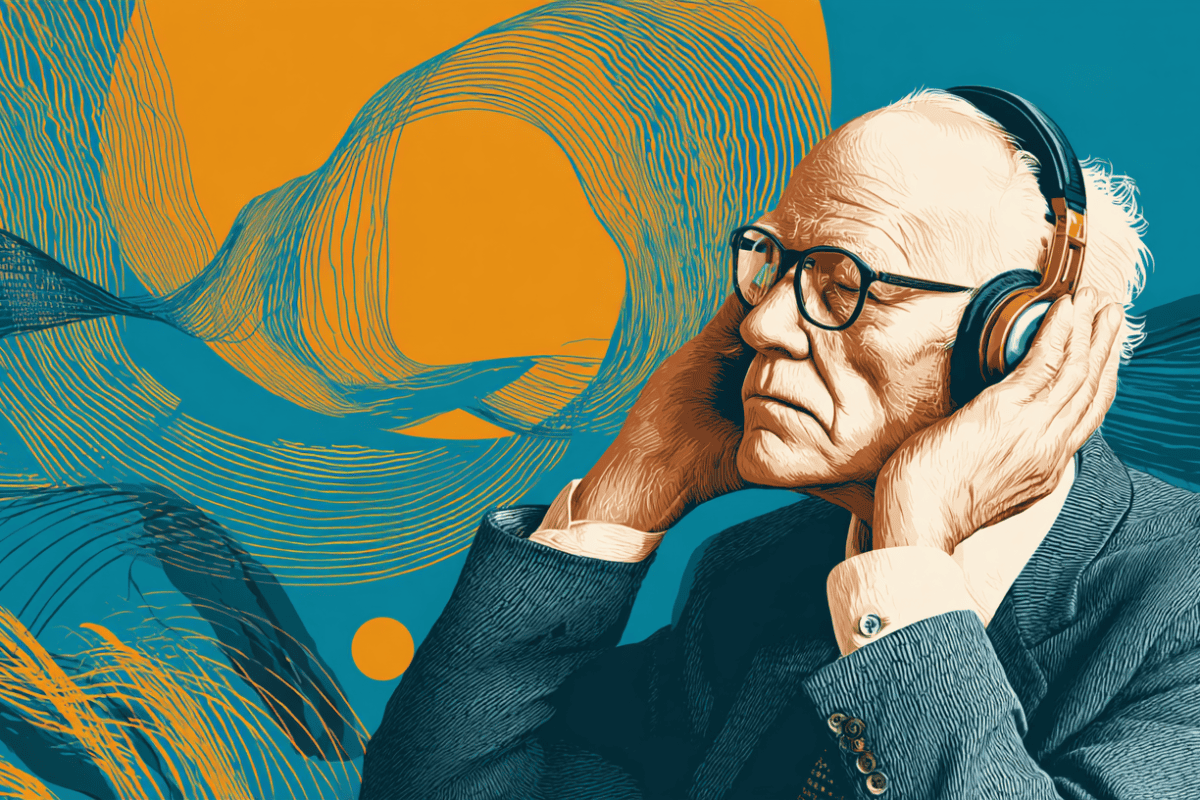By Debra Mueller, Hearing Care Professional at HearUSA
Nothing quite matches the energy, excitement, and entertainment of music festivals and concerts. But amid the fun, many music fans can overlook a serious and often irreversible health risk associated with live music: hearing damage.
The average concert often clocks in at over 100 decibels – a volume high enough to cause hearing damage after just a few minutes of exposure. According to ASHA, sound levels at 91 decibels and above are safe for only two hours before presenting a risk to hearing health, putting most shows well past the threshold for potential hearing harm.
To continue enjoying your favorite shows and artists for years to come, it’s important to learn a few simple tips and tricks to help protect your hearing.
Loud Environments With Lasting Impacts
Whether you’re at a packed indoor arena or an open-air festival, loud sound exposure poses significant risks to your hearing. Indoor venues with enclosed acoustics can make sound more intense as it bounces off walls and ceilings; while, outdoor shows can still hit dangerous decibel levels, especially if you’re positioned near the speakers or close to the stage.
Noise-induced hearing loss happens when loud sounds damage the delicate hair cells in your inner ear or the auditory nerve itself. This can happen gradually, with repeated exposure, or suddenly after one intense event. Many experience symptoms like muffled hearing, temporary hearing loss, or a ringing sensation in the ears (a condition known as tinnitus) after concerts. While these symptoms often fade within 24 to 48 hours, they can also signal the start of permanent damage if they persist.
Age can also play a role in how your ears respond to loud environments. Older adults may already have some degree of age-related hearing loss, which can make it harder to filter out background noise. But younger people aren’t as immune; a 2022 study estimated that over 1 billion young adults worldwide are at risk of hearing loss due to unsafe listening practices. Plus, repeated damage early in life can compound over time, leaving individuals more vulnerable as they age.
Easy Ways to Protect Your Hearing
The good news is that there are many ways to protect your hearing while attending concerts this summer. To start, wearing earplugs is one of the simplest and most effective ways to reduce sound levels. Many venues even offer high-fidelity earplugs designed to lower volume without distorting the experience. If not, over-the-counter options are easy to find, and worth tossing in your pocket before heading out.
Where you stand matters, too. The closer you are to the source, the greater the risk. If you can, opt for a spot that isn’t directly in front of the speakers and take occasional breaks away from the noise to give your ears a much-needed reset. And while it’s tempting to shout over the music to your friends, yelling only adds to the noise exposure and increases the risk to your ears.
Being mindful of noise exposure frequency also helps. If you’re planning to hit several shows or festivals this summer, be mindful of cumulative exposure. Giving your ears time to recover between events can go a long way in preserving your hearing.
Stay Vigilant if Post-Concert Symptoms Persist
If you’re still feeling the familiar post-concert effects days after an event, such as persistent ringing or difficulty hearing conversations, it may be time to schedule a hearing check. Along the same vein, if you find yourself getting confused or lost in group conversations, asking people to repeat themselves, or notice yourself turning the volume up on headphones or speakers multiple times in order to hear, don’t hesitate to get your hearing checked.
Hearing Care Professionals can identify early signs of damage and help you take steps to prevent it from worsening. HearUSA, for example, offers free hearing screenings at locations nationwide. So if you leave a concert and sounds seem dull or your ears are buzzing, pay attention; short-term symptoms are your ears waving a red flag.
Digital Health Buzz!
Digital Health Buzz! aims to be the destination of choice when it comes to what’s happening in the digital health world. We are not about news and views, but informative articles and thoughts to apply in your business.


